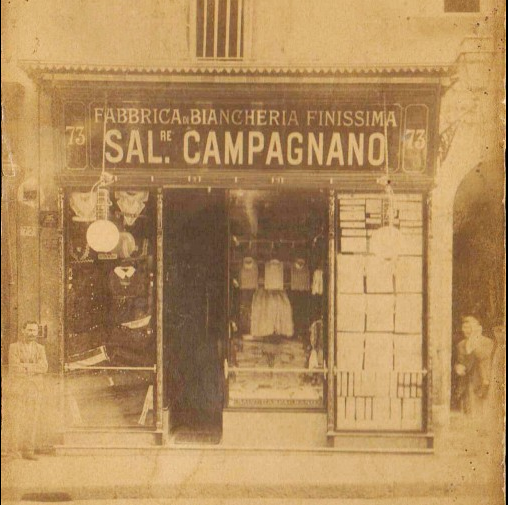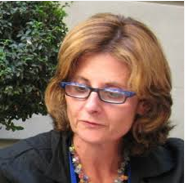
 |
| Italian Word of the Week: CUCINA |
| by Daniela
Gross The word of this week is so beloved to the Italian way of life and thinking. “Cucina” - to be pronounced “kutchìna”- comes from the Latin. The “cucina” is the kitchen, and at the same time it is a verb, specifically the third person singular of the present indicative or the second-person imperative of “cucinare” (to cook). Both as a verb and as a noun, it is a really frequently used word. Italy is a country where food is sort of a religion. Here to cook is a daily routine, as it is to take care of your dear ones sand of yourself through good food. If you eat kosher this practice is a bit harder. The kosher cooking requires a careful choice of ingredients and specific preparations, items that sometimes are quite complicated to assemble. Except in the big Jewish Communities, it is anything but easy to have a kosher “cucina”. The kosher food is not so widely available, it is sometimes so expensive to be unaffordable for many families. The recent project of the Union of the Italian Jewish Communities, in collaboration with the Ministry of Economic Development, aimed at setting up a national brand for the Italian kosher food should lighten these labors. In the meantime, the social kosher kitchen granted in Milan to the less fortunate by the Chabad group, an article that you can read about it in this issue, comes as a welcome and meaningful news. |






This newsletter is published under difficult conditions. The editors of this newsletter are Italian journalists whose native language is Italian. They are willing to offer their energy and their skills to give international readers the opportunity of learning more about the Italian Jewish world, its values, its culture and its traditions.
In spite of all our efforts to avoid this, readers may find an occasional language mistake. We count on your understanding and on your help and advice to correct these mistakes and improve our publication.
Pagine Ebraiche International Edition is published by the Union of Italian Jewish Communities (UCEI). UCEI publications encourage an understanding of the Jewish world and the debate within it. The articles and opinions published by Pagine Ebraiche International Edition, unless expressly stated otherwise, cannot be interpreted as the official position of UCEI, but only as the self-expression of the people who sign them, offering their comments to UCEI publications. Readers who are interested in making their own contribution should email us at desk@ucei.it
You received this newsletter because you authorized UCEI to contact you. If you would like to remove your email address from our list, or if you would like to subscribe using a new email address, please send a blank email to desk@ucei.it stating "unsubscribe" or "subscribe" in the subject field.
© UCEI - All rights reserved - The articles may only be reproduced after obtaining the written permission of the editor-in-chief. Pagine Ebraiche - Reg Rome Court 199/2009 – Editor in Chief: Guido Vitale - Managing Editor: Daniela Gross.
Special thanks to: Francesco Moises Bassano, Susanna Barki, Amanda Benjamin, Monica Bizzio, Angelica Edna Calò Livne, Eliezer Di Martino, Alain Elkann, Dori Fleekop, Daniela Fubini, Benedetta Guetta, Sarah Kaminski, Daniel Leisawitz, Annette Leckart, Gadi Luzzatto Voghera, Yaakov Mascetti, Francesca Matalon, Jonathan Misrachi, Anna Momigliano, Giovanni Montenero, Elèna Mortara, Sabina Muccigrosso, Lisa Palmieri Billig, Jazmine Pignatello, Shirley Piperno, Giandomenico Pozzi, Daniel Reichel, Colby Robbins, Danielle Rockman, Lindsay Shedlin, Rachel Silvera, Adam Smulevich, Simone Somekh, Rossella Tercatin, Ada Treves, Lauren Waldman.
Questo notiziario è realizzato in condizioni di particolare difficoltà. I redattori di questo notiziario sono giornalisti italiani di madrelingua italiana. Mettono a disposizione le loro energie e le loro competenze per raccontare in lingua inglese l'ebraismo italiano, i suoi valori, la sua cultura e i suoi valori. Nonostante il nostro impegno il lettore potrebbe trovare errori e imperfezioni nell'utilizzo del linguaggio che faremo del nostro meglio per evitare. Contiamo sulla vostra comprensione e soprattutto sul vostro aiuto e sul vostro consiglio per correggere gli errori e migliorare.
Pagine Ebraiche International Edition è una pubblicazione edita dall'Unione delle Comunità Ebraiche Italiane. L'UCEI sviluppa mezzi di comunicazione che incoraggiano la conoscenza e il confronto delle realtà ebraiche. Gli articoli e i commenti pubblicati, a meno che non sia espressamente indicato il contrario, non possono essere intesi come una presa di posizione ufficiale, ma solo come la autonoma espressione delle persone che li firmano e che si sono rese gratuitamente disponibili. Gli utenti che fossero interessati a offrire un proprio contributo possono rivolgersi all'indirizzo desk@ucei.it
Avete ricevuto questo messaggio perché avete trasmesso a Ucei l'autorizzazione a comunicare con voi. Se non desiderate ricevere ulteriori comunicazioni o se volete comunicare un nuovo indirizzo email, scrivete a: desk@ucei.it indicando nell'oggetto del messaggio "cancella" o "modifica".
© UCEI - Tutti i diritti riservati - I testi possono essere riprodotti solo dopo aver ottenuto l'autorizzazione scritta della Direzione. Pagine Ebraiche International Edition - notiziario dell'ebraismo italiano - Reg. Tribunale di Roma 199/2009 - direttore responsabile: Guido Vitale - Coordinamento: Daniela Gross.
Realizzato con il contributo di: Francesco Moises Bassano, Susanna Barki, Amanda Benjamin, Monica Bizzio, Angelica Edna Calò Livne, Eliezer Di Martino, Alain Elkann, Dori Fleekop, Daniela Fubini, Benedetta Guetta, Sarah Kaminski, Daniel Leisawitz, Annette Leckart, Gadi Luzzatto Voghera, Yaakov Mascetti, Francesca Matalon, Jonathan Misrachi, Anna Momigliano, Giovanni Montenero, Elèna Mortara, Sabina Muccigrosso, Lisa Palmieri Billig, Jazmine Pignatello, Shirley Piperno, Giandomenico Pozzi, Daniel Reichel, Colby Robbins, Danielle Rockman, Lindsay Shedlin, Rachel Silvera, Adam Smulevich, Simone Somekh, Rossella Tercatin, Ada Treves, Lauren Waldman.






